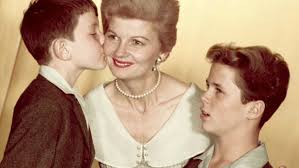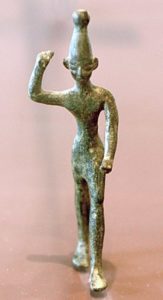
I graduated high school in 1968. What a great year—for race riots, assassinations, war protests and burning buildings! None of it affected me directly, as I was working my first summer job and realizing I absolutely hated the 8-to-5 routine. (Just like school! What was the point?) In other words, like most 18-year-olds I was totally self-focused. Things seemed pretty bad out there, but they were still out there. Had I a boyfriend who’d just received his draft notice I would have felt differently, but boyfriends of any kind were still in my future.
I doubt the perspective of 18-year-olds has changed much since then, but current events have leaned hard on them. These “uncertain times,” for the first time I can remember, have affected literally everyone. The late sixties and seventies were awful, but I was busy getting married and having babies and didn’t notice so much. 2020 may actually signal a profound turning point in a long process of coming apart (in the Charles-Murray sense).
Who’s in charge here? Nobody.
Never have officeholders seemed more hapless. Never has magical thinking been so pronounced. Never has a culture so obsessed over anecdotes while broad-based problems go begging for attention. Definitions are so blurred and signals so crossed that vandals burning property owned by blacks is excused in the cause of justice for blacks. Are we doomed?
Nah. This is America, in the best way. Our national superpower is initiative, and I don’t think we’ve lost it. It’s true that the academic left would do everything in their power to tar-brush our history and remake our character, but the academic left is not invincible. Polarization is as intense as it ever was—except for that situation in 1861, which was a little worse—and that’s not good. But neither is it hopeless.
I’ve been rereading Andy Crouch’s Culture Making, and here’s one thing, among a lot of things, that stands out: “I have become convinced that little good comes from straining to ‘change the culture.’” That’s a misunderstanding of what culture is and who we are. Whole books could be written about what culture is (and Crouch wrote one), but we can all understand who we are as a function of our community: family, neighborhood, church, club, or organization. And community is where we don’t change culture, but make it.
Volunteers who come together to sweep up broken glass are a community, quickly formed and just as quickly dissolved when the job is done. But to get out there and make some culture requires something a little more deliberate, and I found Crouch’s subsection on “The 3, the 12, and the 120” especially helpful.
Every movement begins with a small group—perhaps just two or four, but three is the perfect number. Each individual springboards off the others, and three is just right for hatching an idea that’s feasible as well as inspiring. To carry it out, however, requires a larger group. Could be 8 or 13, but 12 has a nice historical—or at least biblical–vibe to it. The 12 provide essential support within a circle that pulls in many talents and skill sets. Then, as the circle widens, it draws in more people as accessories: say, 120. The 120 are not the core; mostly likely they will be involved in several other projects, as well as focusing on their own, but they form a kind of phalanx to extend the original idea, now refined to a cultural product, onto a broader platform—that is, into “the culture” at large.
As I read this I found myself thinking of Christ’s ministry, and sure enough: he began with his “3”—his inner group of apostles, or even the original Trinity. His “12” were the apostles who spent almost every waking moment with him throughout his ministry. But to launch that ministry into the world took the 120 believers who were praying in an upper room on Pentecost.
But the same pattern can hold for any new cultural good. Publishing a book, for instance. Andy Crouch explains that his “3” were his wife and a good friend, who sounded his ideas for Culture Making and supplied inspiration for further thoughts. Then his publishing team, the “12,” pitched in to make the book a reality: editors, designers, and marketer. To get the book off the ground took a platoon of bloggers, pastors, reviewers, and interviews, so that eventually Culture Making got to me and stimulated my thinking to look for my niche and my 3. Everyone makes culture; intentionally or not. Everyone has their potential 3 and 12, and perhaps even their 120. And everyone has power: the question is, how much, and what do we do with it?













 around her, take stock of what she had, and be grateful for it. In time she gave hundreds of American women reason to be grateful too.
around her, take stock of what she had, and be grateful for it. In time she gave hundreds of American women reason to be grateful too. She always said—and sincerely believed—that a woman’s chief place was in the home, but she saw that place as a noble calling rather than thankless drudgery. She was, it’s fair to say, the Oprah of her day. Who can tell how many women felt lifted up and encouraged by the earnest editor of their favorite magazine?
She always said—and sincerely believed—that a woman’s chief place was in the home, but she saw that place as a noble calling rather than thankless drudgery. She was, it’s fair to say, the Oprah of her day. Who can tell how many women felt lifted up and encouraged by the earnest editor of their favorite magazine? decade:
decade: 

 Take “reflection.” Aside from the myth that gives “narcissism” its name, this form of idolatry is a cartoon image, the smitten individual gazing at himself in a mirror while surrounded by fluttering hearts. We’re too sophisticated for that, or almost. I’m old enough to remember a video that made the rounds during the 2004 election: John Edwards, the Democrat candidate for V-P, taking 14 minutes to comb his hair in front of a mirror just before his one televised debate. (To be fair, he possessed exceptional hair.)
Take “reflection.” Aside from the myth that gives “narcissism” its name, this form of idolatry is a cartoon image, the smitten individual gazing at himself in a mirror while surrounded by fluttering hearts. We’re too sophisticated for that, or almost. I’m old enough to remember a video that made the rounds during the 2004 election: John Edwards, the Democrat candidate for V-P, taking 14 minutes to comb his hair in front of a mirror just before his one televised debate. (To be fair, he possessed exceptional hair.)
